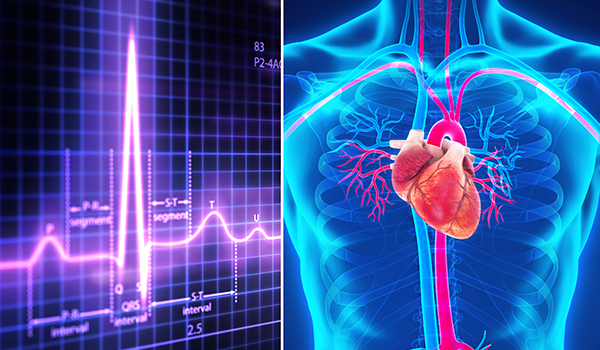
(The U.S. Food and Drug Administration)
Heart disease, also called “cardiovascular disease,” can have serious consequences. In fact, heart disease is the leading cause of death for men and women in the United States, according to the Centers for Disease Control and Prevention. But medical devices such as pacemakers and defibrillators have extended and improved the lives of millions of people worldwide.
The U.S. Food and Drug Administration regulates medical devices in the United States and evaluates certain devices for safety and effectiveness before they can be marketed. These medical devices include those used to treat cardiovascular disease, cardiovascular conditions, and other related issues. Many of these FDA-approved medical devices can be placed in a person’s body (“implanted”), while others are used outside the body.
What are some types of heart devices?
FDA-approved devices are used to treat various cardiovascular issues. Categories include those listed below.
- Automated external defibrillators (AEDs): Portable and automatic, these devices help restore normal heart rhythm in patients whose hearts suddenly and unexpectedly stop pumping blood (an event called “cardiac arrest”). AEDs analyze heart rhythm and can help rescuers determine whether a shock is needed to restore a normal heartbeat. (Learn more about AEDs on the FDA’s website.)
- Cardiac ablation catheters: Long, thin flexible tubes that are threaded into or onto the heart, cardiac ablation catheters treat abnormally rapid heartbeats. They work by modifying small areas of heart tissue that are causing abnormal heart rhythms.
- Cardiovascular angioplasty devices: These are long, thin, flexible tubes that are threaded into a heart or other blood vessel to open narrowed or blocked areas. They improve blood flow to the heart, reduce chest pain, and treat heart attacks.
- Cardiac pacemakers: Small and battery-powered, pacemakers are implanted permanently into the body. Used when the heart beats too slowly, they monitor the organ’s electrical impulses and, when needed, deliver electrical stimulation to make it beat at a more appropriate rate.
- Implantable cardioverter defibrillators (ICDs): These monitor heart rhythms and deliver shocks if dangerously fast rhythms are detected. Many record the heart’s electrical patterns when certain abnormal rhythms occurs, allowing doctors to review the patterns. New monitoring devices allow ICDs to transmit basic information to physicians.
- Prosthetic (artificial) heart valves: Used for replacing diseased or dysfunctional heart valves, which direct blood flow through the heart, these are available in two forms. Mechanical valves are made of man-made materials. The second type, called “bioprosthetic” valves, are made from tissue taken from animals or human cadavers.
- Stents: Small, lattice-shaped, metal tubes that are inserted permanently into an artery, stents help improve blood flow. Some contain drugs that reduce the chance that arteries will become blocked again.
- Ventricular assist devices (VADs): Mechanical pumps that help weak hearts pump blood effectively, VADs were originally intended for short-term use until donor hearts became available. Some are now used for long-term therapy in patients with severe heart failure who are not candidates for heart transplants.
Where can you find more information—and when should you seek medical assistance?
If you ever have questions or concerns about your heart, or feel like you’re having a heart attack or other medical issues, seek medical attention. You can talk to your primary care doctor. In an emergency, immediately call 9-1-1.
Also know the warning signs and symptoms of a heart attack so that you can call 9-1-1 if you or someone you know might be having a heart attack. The chances of survival are greater when emergency treatment begins quickly. (Learn more about heart attack symptoms for women on the FDA’s website.)
While AEDs are often found in public areas—and people with CPR and AED training can use them to help a person in distress—usually health care providers determine which cardiovascular devices are best for each patient (if any).
How can you report problems with these devices?
If you have problems while using an FDA-regulated device—or if a device injures you—the FDA encourages you to file a voluntary report online at MedWatch, the FDA Safety Information and Adverse Event Reporting program.
For non-emergency reporting, if you have questions, or want to talk with someone, call the FDA Consumer Complaint Coordinator who works with your state. Phone numbers are listed online.
You can learn more about how and why to report problems on the FDA’s website.




